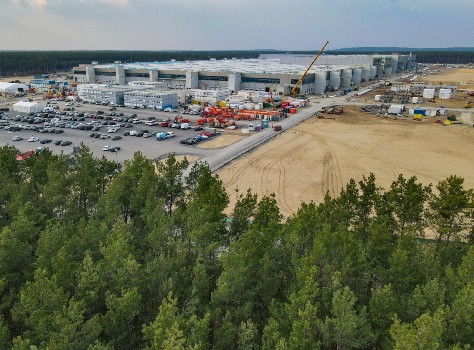“Demand from institutional investors was strong,” Daimler said in a statement.
As announced the day before, Daimler put up 61.1 million EADS shares for sale at €37 apiece. EADS itself bought 16 million of the shares worth €600 million.
Daimler had already sold a 7.5-percent holding in EADS for €1.66 billion in December to concentrate on cars and trucks.
“Daimler is a founding member of EADS, so we are very pleased the company is well positioned for the future both in terms of its ownership structure with a higher free float of its shares as well as its overall business prospects,” Daimler board member Bodo Uebber said in the statement.
“At the same time, we are pursuing a corporate strategy with a clear focus on automotive products and services, a principle which also applies to our shareholdings in other companies. Therefore, today’s transaction is a very important step in this regard.”
Uebber said that Daimler would invest the proceeds of the sale in its core business.
The car maker’s exit is part of a broader overhaul of EADS’s shareholder structure.
The news comes after EADS said Monday it was in talks to buy 1.56 percent of its own shares from the French state for €478 million.
EADS said that France had proposed a price of €37.35 per share, the same price EADS paid last week to acquire a stake of 1.61 percent from French media company Lagardere.
EADS, which owns passenger aircraft maker Airbus, announced a share buyback programme as part of a wider restructuring aimed at reducing state ownership and interference in the company. Germany and Spain also own stakes in the aerospace and defence giant.
France, which is struggling to meet its commitments to the EU to reduce its public deficit, last month took advantage of high prices for shares in the aircraft engine and equipment manufacturer Safran to sell a 3.12 percent stake and raise €448.5 million.
EADS activities involved in national security, such as those participating in France’s nuclear deterrent, have been transferred to dedicated subsidiaries whose directors are chosen with each state’s approval.
The company unveiled better-than-expected 2012 results in February driven by record deliveries of its Airbus aircraft, but cautioned growth could tail off in the current year.
AFP/mry



 Please whitelist us to continue reading.
Please whitelist us to continue reading.
Member comments